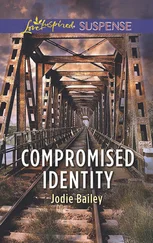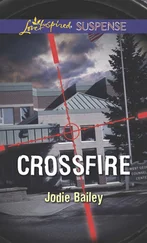“Did Dr. Ghertz perform any other psychological tests?”
“Yes. He did a second MRI, one that was performed while Peter was working on a simple task. Peter was given photographs of faces and asked to identify the emotions reflected on them. Unlike a test group of adults who got most of those assessments correct, Peter tended to make errors. In particular, he identified fearful expressions as angry, confused, or sad. The MRI scan showed that while he was focused on this task, it was the amygdala that was doing the work…not the prefrontal cortex.”
“What can you infer from that, Dr. Wah?”
“Well, Peter’s capacity for rational, planned, premeditated thought is still in its developmental stages. Physiologically, he just can’t do it yet.”
Jordan watched the jurors’ response to this statement. “Dr. Wah, you said you met with Peter as well?”
“Yes, at the correctional facility, for ten one-hour sessions.”
“Where did you meet with him?”
“In a conference room. I explained who I was, and that I was working with his attorney,” King said.
“Was Peter reluctant to speak to you?”
“No.” The psychiatrist paused. “He seemed to enjoy the company.”
“Did anything strike you about him, at first?”
“He seemed unemotional. Not crying, or smiling, or laughing, or showing hostility. In the business, we call it flat affect.”
“What did you two talk about?”
King looked at Peter and smiled. “The Red Sox,” he said. “And his family.”
“What did he tell you?”
“That Boston deserved another pennant. Which-as a Yankees fan myself-was enough to call into question his capacity for rational thought.”
Jordan grinned. “What did he say about his family?”
“He explained that he lived with his mother and father, and that his older brother Joey had been killed by a drunk driver about a year earlier. Joey had been a year older than Peter. We also talked about things he liked to do-mostly centered on programming and computers-and about his childhood.”
“What did he tell you about that?” Jordan asked.
“Most of Peter’s childhood memories involved situations where he was victimized either by other children or by adults whom he’d perceived as being able to help him, yet didn’t. He described everything from physical threats-Get out of my way or I’m going to punch your lights out; to physical actions-doing nothing more than walking down a hallway and being slammed up against the wall because he happened to get too close to someone walking past him; to emotional taunts-like being called homo or queer.”
“Did he tell you when this bullying started?”
“The first day of kindergarten. He got on the bus, was tripped as he walked down the aisle, and had his Superman lunch box thrown onto the highway. It continued up to shortly before the shooting, when he suffered public humiliation after his romantic interest in a classmate was revealed.”
“Doctor,” Jordan said, “didn’t Peter ask for help?”
“Yes, but even when it was given, the result backfired. Once, for example, after being shoved by a boy at school, Peter charged him. This was seen by a teacher, who brought both boys to the principal’s office for detention. In Peter’s mind, he’d defended himself, and yet he was being punished as well.” King relaxed on the stand. “More recent memories were colored by Peter’s brother’s death and his inability to live up to the same standards his brother had set as a student and a son.”
“Did Peter talk about his parents?”
“Yes. Peter loved his parents, but didn’t feel he could rely on them for protection.”
“Protection from what?”
“Troubles in school, feelings he was having, suicide ideation.”
Jordan turned toward the jury. “Based on your discussions with Peter, and Dr. Ghertz’s findings, were you able to diagnose Peter’s state of mind on March 6, 2007, with a reasonable degree of medical certainty?”
“Yes. Peter was suffering from post-traumatic stress disorder.”
“Can you explain what that is?”
King nodded. “It’s a psychiatric disorder that can occur following an experience in which a person is oppressed or victimized. For example, we’ve all heard of soldiers who come home from war and can’t adjust to the world because of PTSD. People who suffer from PTSD often relive the experience through nightmares, have difficulty sleeping, feel detached. In extreme cases, after exposure to serious trauma, they might exhibit hallucinations or dissociation.”
“Are you saying that Peter was hallucinating on the morning of March sixth?”
“No. I believe that he was in a dissociative state.”
“What’s that?”
“It’s when you’re physically present, but mentally removed,” King explained. “When you can separate your feelings about an event from the knowledge of it.”
Jordan knit his brows together. “Hang on, Doctor. Do you mean that a person in a dissociative state could drive a car?”
“Absolutely.”
“And set up a pipe bomb?”
“Yes.”
“And load weapons?”
“Yes.”
“And fire those weapons?”
“Sure.”
“And all that time, that person wouldn’t know what he was doing?”
“Yes, Mr. McAfee,” King said. “That’s exactly right.”
“In your opinion, when did Peter slip into this dissociative state?”
“During our interviews, Peter explained that the morning of March sixth, he got up early and went to check a website for feedback on his video game. By accident, he pulled up an old file on his computer-the email he had sent to Josie Cormier, detailing his feelings for her. It was the same email that, weeks before, had been sent to the entire school, and that had preceded an even greater humiliation, when his pants were pulled down in the cafeteria. After he saw that email, he said, he can’t really remember the rest of what happened.”
“I pull up old files by accident on my computer all the time,” Jordan said, “but I don’t go into a dissociative state.”
“The computer had always been a safe haven for Peter. It was the vehicle he used to create a world that was comfortable for him, peopled by characters who appreciated him and whom he had control over, as he didn’t in real life. Having this one secure zone suddenly become yet another place where humiliation occurred is what triggered the break.”
Jordan crossed his arms, playing devil’s advocate. “I don’t know…we’re talking about an email here. Is it really fair to compare bullying to the trauma seen by war veterans in Iraq, or survivors from 9/11?”
“The thing that’s important to remember about PTSD is that a traumatic event affects different people differently. For example, for some, a violent rape might trigger PTSD. For others, a brief groping might trigger it. It doesn’t matter if the traumatic event is war, or a terrorist attack, or sexual assault, or bullying-what counts is where the subject is starting from, emotionally.”
King turned to the jury. “You might have heard, for example, of battered woman syndrome. It doesn’t make sense, on the outside, when a woman-even one who’s been victimized for years-kills her husband when he’s fast asleep.”
“Objection,” Diana said. “Does anyone see a battered woman on trial?”
“I’ll allow it,” Judge Wagner replied.
“Even when a battered woman is not immediately under physical threat, she psychologically believes she is, thanks to a chronic, escalating pattern of violence that’s caused her to suffer from PTSD. It’s living in this constant state of fear that something’s going to happen, that it’s going to keep happening, which leads her to pick up the gun at that moment, even though her husband is snoring. To her, he is still an immediate threat,” King said. “A child who is suffering from PTSD, like Peter, is terrified that the bully is going to kill him eventually. Even if the bully is not at that moment shoving him into a locker or punching him, it could happen at any second. And so, like the battered wife, he takes action even when-to you and me-nothing seems to warrant the attack.”
Читать дальше












